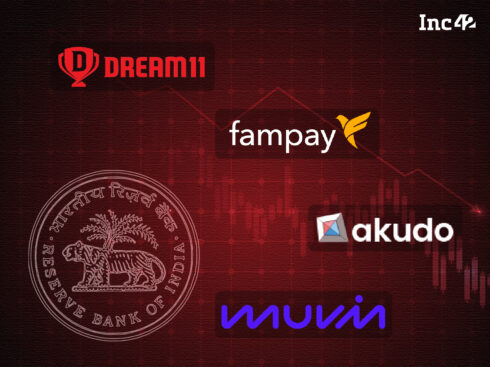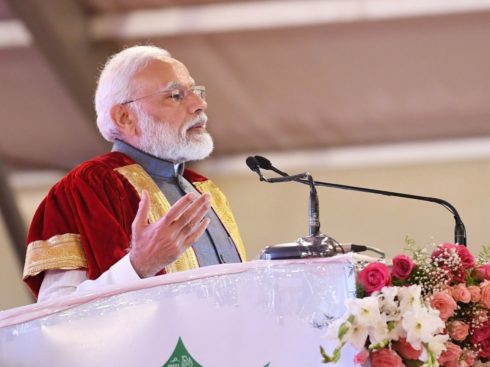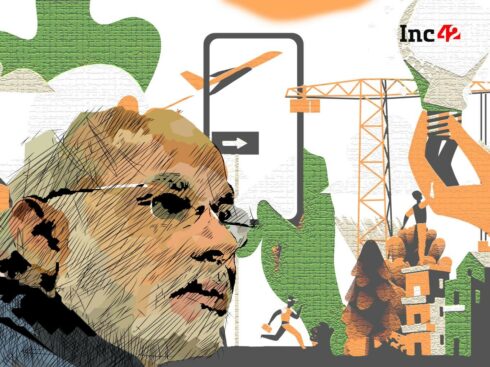
SUMMARY
The RBI, in its Financial Stability Report, said that cash crunch and uncertain global macroeconomic scenario continue to pose risks for Indian startups which may lead to correction in their valuations
The central bank also highlighted the lacklustre performance of new-age technology companies and said investors are exercising more caution because of it
The challenges faced by the Indian startup ecosystem may also result in a consolidation wave, the RBI said
The Reserve Bank of India (RBI) in its Financial Stability Report, June 2023, said cash crunch and uncertain global macroeconomic scenario continue to pose risks for Indian startups which may lead to correction in their valuations.
“Tighter liquidity conditions, uncertain global macroeconomic outlook, and geopolitical fragmentation continue to pose risks that may trigger correction in valuations of these firms (startups) and a wave of consolidation,” said the central bank in the report.
It is pertinent to note that since 2022, the Indian startup ecosystem has been reeling under global macroeconomic headwinds and the Russia-Ukraine war, which has led to a severe funding crunch. The trend continued in 2023 as well, with Indian startups raising only $3 Bn in Q1 2023 as against $12 Bn in the corresponding period of last year, as per Inc42’s ‘Indian Tech Startup Funding Report Q1 2023’.
While the first quarter saw a 75% year-on-year (YoY) decline in funding, the number of deals also nosedived 58% YoY to 213. Similarly, the funding and number of deals plunged 37.5% and 32% YoY in May 2023 as well.
The sharp decline in funding has also resulted in thousands of job cuts in the Indian startup ecosystem. Over 100 Indian startups have laid off over 27K employees so far since 2022. Global tech giants also couldn’t escape the slowdown, with even the likes of Amazon, Google, and Meta firing employees.
All these have also resulted in a consolidation wave in the Indian startup ecosystem, with major players acquiring smaller ones. While PhonePe abandoned its plan to acquire ZestMoney over due diligence issues, Aurum PropTech is acquiring NestMoney for a mere $11 Mn. Some of the other major acquisitions include VLCC buying Ustraa, Adani Group’s acquisition of Trainman, and CRED acquihiring Spenny.
Listed Startups Also Feel The Heat
The impact of the slowdown was equally palpable in the performance of the stocks of listed new-age tech startups like Zomato, Paytm, PB Fintech, Nykaa, and Delhivery. While on one hand, these stocks were on a free fall, some of their major investors like Tiger Global and SoftBank also began offloading their stakes in these companies.
The RBI, in its report, said that investors are exercising more caution due to the lacklustre stock market performance of new-age technology companies, which significantly depend on foreign capital and are more exposed to risks of tightening global financial conditions.
However, these stocks have witnessed a turnaround and have made slight recovery in recent months on the back of change in investor sentiment following their upbeat Q3 and Q4 FY23 results.
In fact, Zomato shares are trading over 26% higher, Paytm is up 60%, and Delhivery has gained over 16% year to date in 2023.
Valuation Markdowns
The adverse conditions have also made many prominent investors cut the valuations of Indian startups on their books in the last few months.
For instance, Invesco cut the valuation of food delivery major Swiggy twice this year to $5.5 Bn from $10.7 Bn earlier. Vanguard Group reduced the value of ride-hailing unicorn Ola by 35% to $4.8 Bn. Neuberger Berman also cut the valuations of two of its Indian portfolio startups – PharmEasy and Pine Labs.
Meanwhile, Prosus recently slashed the fair value of BYJU’S, which is facing multiple battles ranging from a debt crisis to investors’ pressure, to $5.1 Bn. Earlier, BlackRock also cut its valuation by 61.9% to $8.36 Bn.
However, we must also note that startups across geographies, not only in India, have been impacted by the funding crunch and the cautious approach adopted by VCs.


























